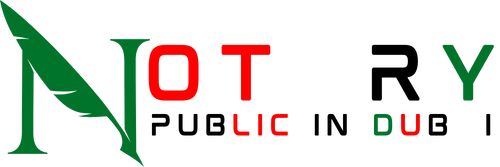Everything you need to know about Notary & Legalisation services in Dubai, all in one place.
Talk to a Notary NowA notary public is a government-appointed official authorised to witness signatures, administer oaths, and certify copies, thereby giving legal credibility to documents.
Notarisation provides assurance that the signature is genuine, the signer acted willingly and was properly identified, and that the document was executed correctly.
Yes, but many countries still require further legalisation (MOFA attestation or embassy stamping). We can guide you through that process.
Yes—Dubai Courts accept bilingual (Arabic/English) formats. We can translate or draft to meet their standards.
Walk-ins are welcome at our office, but booking online guarantees the fastest turnaround.
Valid Emirates ID or Passport. For corporate signatories, bring proof of authority (e.g., Board Resolution, POA).
Only if you hold a properly notarised & attested Power of Attorney authorising you to act.
Less than 15 minutes once all documents are in order.

A secure Dubai Courts portal allowing video-based identity verification and digital notarisation with a bar-coded PDF output.
UAE residents and non-residents alike, provided they have valid identification and stable video connection.
Yes. The bar-code and digital signature have the same legal weight as a physical seal.
POAs, legal notices, affidavits, MoUs, contract addenda, NOCs, and certain corporate consents.
Company incorporation deeds, some real-estate transfers, and documents requiring witness signatures in-person.
No—just a device with camera, microphone, and Zoom or the approved video platform.
Complete our online form, upload your draft, and choose a convenient time. We’ll send a confirmation link.
Arabic and English. For other languages, certified translation into Arabic is mandatory.
Via live video call where you show your Emirates ID/passport plus answer control questions.
Yes. Each signer must join the call, present ID, and sign digitally.
Secure payment link (card) or bank transfer. Receipts issued instantly.
Within 1 hour after successful video verification and payment.

An official confirmation (stamp/signature) by a recognised authority validating authenticity of a document or its signature.
To prove they were genuinely issued and meet the Ministry of Education’s recognition criteria.
Final stamp from the UAE Ministry of Foreign Affairs confirming the authenticity of prior embassy/legalisation steps.
Typically three: (1) Home-country education authority, (2) UAE embassy/consulate, (3) MOFA in the UAE.
Average 10–14 business days, faster services available for select countries.
Yes—our London partner submits to the FCDO and UAE embassy on your behalf.
Lamination must be removed; otherwise authorities may reject the document.
Yes, the translator’s certificate must be notarised and attested alongside the original.
Most authorities require hard-copy originals with wet signature. We’ll verify case-by-case.
An apostille is a single-step legalisation for Hague Convention members. The UAE is not yet a member, so further embassy/MOFA steps are required.
Yes—our client portal shows real-time progress and courier tracking numbers.
Complimentary pickup within Dubai. International shipping can be arranged at cost.
AED 150 for personal docs; AED 600 for commercial docs (subject to change by MOFA).
A legal instrument authorising another person to act on your behalf for specified matters.
General POA grants broad powers; Special POA restricts powers to specific tasks (e.g., selling one property).
Dubai Courts require Arabic or bilingual format. We provide certified translation and drafting.
Unless a termination date is included, a POA is valid until revoked or the principal dies.
Yes—via a notarised Revocation Deed, which can also be processed through E-Notary.
Yes—board resolutions or constitutional documents must authorise signatories to issue the POA.
Most POAs do not need witnesses in Dubai, but some foreign jurisdictions require them. We’ll advise accordingly.
Our legal consultants are on call 24/7 to guide you through notarisation, attestation, and drafting. Let’s make it simple.
Call or WhatsApp Now
Scroll
Copyright © 2025 notarypublicindubai.com. All Rights Reserved.